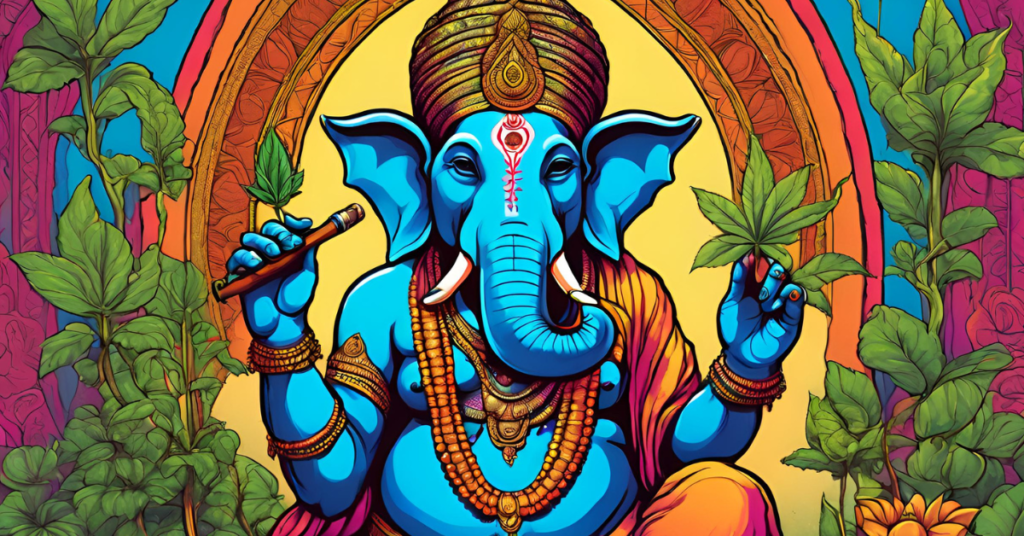Cannabis, known as “ganja” or “bhang” in India, has a rich history intertwined with Hindu spiritualism, dating back thousands of years. Its use in religious ceremonies and spiritual practices has endowed it with a profound cultural and religious significance in Hinduism.
Ancient Origins and Cultural Significance
In ancient texts such as the Vedas, cannabis is referenced as one of the five sacred plants, known as “Panchavati.” It is believed that Lord Shiva, one of the principal deities in Hinduism, discovered the transcendental properties of cannabis. Legend has it that Shiva consumed cannabis to focus inward, enhancing meditation and achieving states of deep spiritual insight.
Ritualistic and Ceremonial Use
During festivals like Maha Shivaratri, dedicated to Lord Shiva, devotees traditionally consume bhang, a preparation made from cannabis leaves and flowers. This practice is seen as a way to emulate Shiva’s transcendental journey and attain spiritual liberation. Bhang is often consumed in various forms, such as drinks or sweets, symbolizing unity with the divine and the breaking of social barriers.
Symbolism and Spiritual Symbolism
Cannabis in Hinduism symbolizes both the destruction of ignorance and the pursuit of spiritual awakening. Its association with Lord Shiva, who is often depicted adorned with garlands of cannabis leaves and seated in meditation, underscores its role as a tool for achieving heightened consciousness and connecting with the divine.
Contemporary Perspectives and Legal Considerations
In modern times, the legal status of cannabis in India has evolved. While bhang remains legal and culturally accepted for religious purposes, the broader use of cannabis faces legal restrictions. However, its spiritual significance continues to resonate deeply within Hindu culture, influencing art, music, and religious practices.
Conclusion
The role of cannabis in Hindu spiritualism transcends mere botanical use; it embodies a spiritual journey towards enlightenment and inner awakening. Its ancient roots in religious ceremonies and its association with Lord Shiva highlight its enduring significance in Hindu culture. As attitudes towards cannabis evolve globally, understanding its sacred context in Hinduism offers profound insights into its cultural legacy and spiritual relevance.
In essence, cannabis in Hindu spiritualism serves as a bridge between the earthly and the divine, guiding seekers towards profound spiritual experiences and deeper connections with the cosmos.



